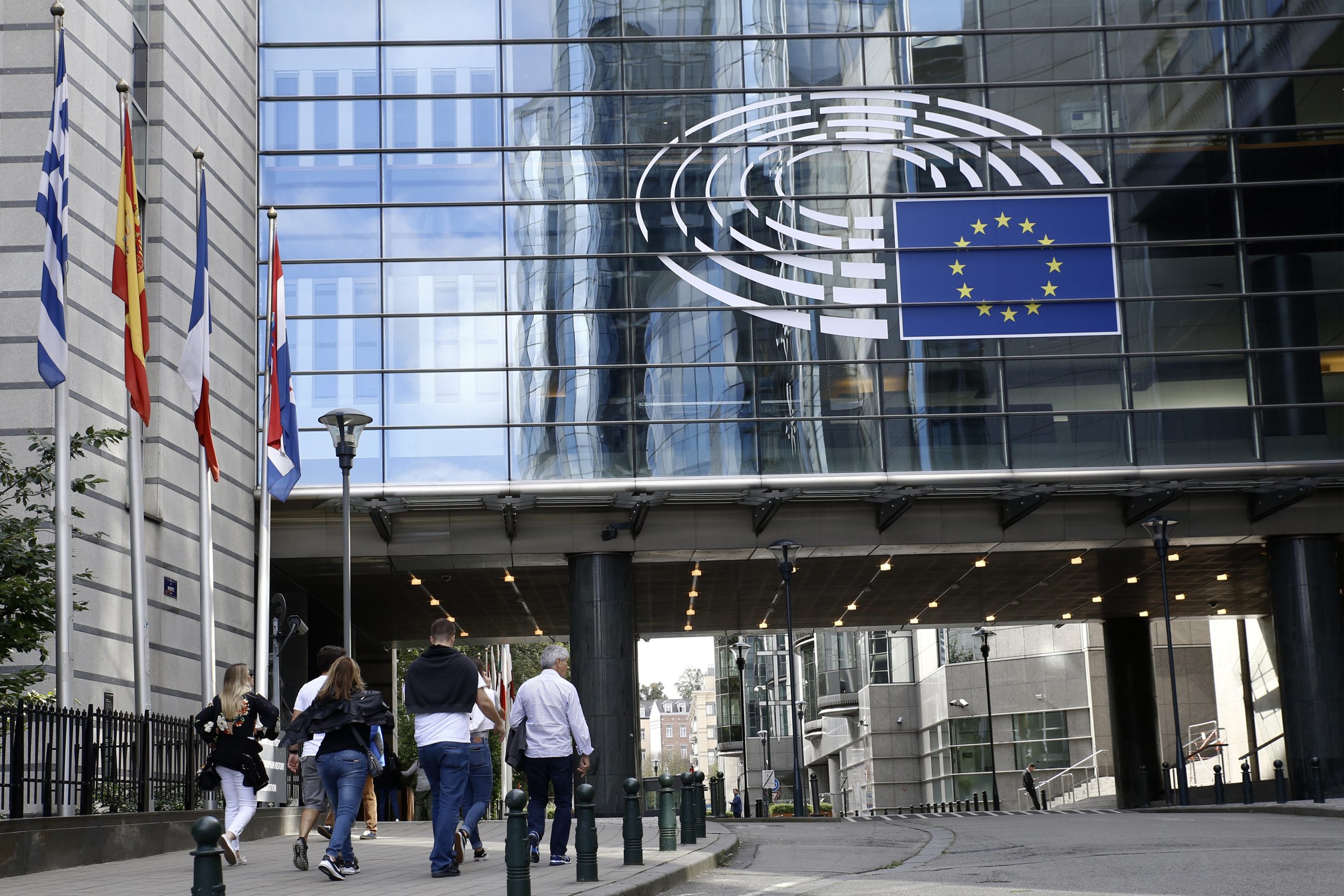
Hungary -now- in the SPOtlight of the Venice Commission
Recently, my colleague – also my professor and editor of Constitutional Discourse – Márton Sulyok published his article and gave us his opinion on the newly created Sovereignty Protection Office of Hungary and the law that established it, namely the Sovereignty Protection Act (which is available in English here). Sulyok – among others – gave us a comparative example to see the greater picture and also stressed that the law – intentionally or accidentally – blurred the concept of sovereignty and constitutional identity, and with instance he stated: “once again we arrived to a point, where the notion of sovereignty is used as a political weapon.” To which, if I may be allowed, I would supplement with a personal experience, when in preparation for a conference where I have given presentation on the rule of law. I wanted to explain the problems around the rule of law with the constitutional identity. At that time, my teacher and mentor drew my attention to the fact that I cannot explain a norm with no specific legal content with another legal phenomenon with a broad interpretation, as it would cause additional problems. Which is not an unknown phenomenon in international and European law, if we just think about the ongoing debates about rule of law and democracy.
As Sulyok mentioned it, at that time the EU already initiated an infringement proceeding against Budapest related to these amendments, since the SPA came along together, hand in hand with several modifications of the Hungarian Criminal Code, the national law on Election Procedure and the Fundamental Law (our Constitution) as well.
However, it was not the end of the international dispute, au contraire only the beginning. The Venice Commission joined the conversation, when they published their Opinion about the mentioned national act, therefore, in the following I am going to give an overview of their concerns and thoughts, and share my thoughts as well.
A short and subjective background
To understand the situation in Hungary, which without leading a political discussion, I want to give a quick and therefore a superficial overview about both side of the coin, and what led the government to try to “protect” sovereignty in this way in the name of “democratic discourse”. However, the current status of the Act, in my personal opinion would rather cause the backslide of this value, than its actual maintenance and protection.
Firstly, there are several -mainstream- online media platforms who are getting different grants from the EU through different tenders, as well as from NGO-s.
This would not be exciting news, since similarly to most countries in Europe, we can easily find other relevant newspapers around the EU with such financial supports. Although, in Hungary it is an ongoing back-to-back fight between the government and the critical side of the press, whereas the situation “escalated” to the point in August of 2023 that the maintenance foundation of one of the largest reach and popularity of online media received the most support during the disposal of 1% of the personal income tax as well.
Whether it is connected or not, we will never know, but many of the critics claimed that it cannot be a coincidence that right after these happenings the ruling government announced its new upcoming law. As mentioned, it is only one interpretation of the happenings, hence let’s look at the other side of the coin.
To see the whole picture, I must talk about the problem which the law itself mentions in the beginning: “There were already attempts to influence the 2022 parliamentary election campaign by money received directly from abroad as confirmed by the national security investigation that revealed support received by the united left-wing opposition.” Which – would like to link back to the scandal that the association nominating the Prime Minister candidate got three million USD during the campaign from an NGO called Action for Democracy. However, as the Opinion stated later “during the discussions in Budapest, however, the rapporteurs were informed that the investigation of these cases was still ongoing”.
The opinion of the Venice Commission
First of all, the Commission examined the procedure for the controversial bill, which was of interest to a broad section of society, and quickly came to the conclusion that the three-week negotiation period was inadequate, especially given the divisions within society, during which the bill could not be examined and criticised in any meaningful way by the public, opposition parties or NGOs. They referred to the resolution of the European Parliament of 18 January 2024, which noted that “the Hungarian National Assembly adopted a ‘national sovereignty protection’ package without proper parliamentary scrutiny or public consultation”.
This part is connected to the democratic backsliding of Hungary that is well-researched in the area of constitutional law, hence I would not get into this topic, since the topic would not fit into this blogpost, but would require an independent one, or rather several articles, given its complexity. But I want to add that to this, the potential new law was already floated for the society around September, but its content was not open for the great public for months then. All in all, the whole procedure from the publishing of the final reading until its adopting took not more than three weeks. Which can open an important discussion about the lawmaking process.
The legitimacy of the legal problem
The Commission accept the concern about “foreign funding or other influence” and stated that it is a valid issue for the national authorities, to be addressed through political debate and, when necessary, by law. Also, they referred to a recent Opinion of their relating to Poland, when the Commission has recognised in principle the legitimacy of the country’s efforts aimed at countering undue foreign influence – but it they also and already warned that flawed legislation might open the door for political misuse, have an influence on the electoral process and lead to the violation of human rights.
The main concern the Commission mentions is that although the Preamble of the SPA and the modifications that is implied within the election procedure the scope of the Act is much wider than the electoral context as it covers “state and social decision-making processes”. In this part they adjust a critic about “the powers of the new body extend beyond electoral campaigns to cover political activity in a broader sense and campaigns for social change” and that during the meetings no one could comprehensively explain such power for the current circumstances. This wide range of content can be interpreted as a new tool against the NGO sphere, which would open a new field to regulate and supervise these associations, but the question is:, isn’t there already existing and enough power and authority to deal with such problems, is it necessary to create a completely new authority? In my opinion -especially nowadays- it is an immensely expensive way to reach the same or about the same effect, which we could reach with a simple but comprehensive reform of the already existing sovereignty protection framework, but maybe it would be too time-consuming for the current circumstances -which can be also interpret in two ways since it was months before two relevant election- to overview and make meaningful changes to the potential and real threats. I believe, the creation of a new authority is an ultima ratio, which you would choose only in a necessity when you cannot achieve a similar impact within the current organisational structure.I want to make it clear that the defence of national sovereignty is a key part of the essential state functions, it is not even a subject up for debate, the Member States are still fundamental and always will be and sovereignty is challenged as perhaps never before. It ensures our belonging, our own culture, wounds, traumas and lessons inherited from our history and ancestors, or indeed memories and tastes that we could not experience anywhere else, only in our country, jokes that can only be understandable for the natives, it is something that is inseparable from the individual, it defines our everyday lives.
The problem of foreign funds
Another main recommendation that the Opinion underlined was to create a more nuanced definition for the foreign funds “taking into account different types of funding sources and co-operation of political parties at international level, excluding funding by international organisations, and providing for the respect of international obligations and among these the obligations emanating from membership of the European Union”. They think it legitimate that the SPA is extending the prohibition of political party funding from foreign sources to all election competitors including individual candidates and local NGOs registered as nominating organisations. It is a crucial statement of the Opinion. It can fill gaps in the legal system and create a more transparent financial background for every party. Despite this, one question is still open for me, namely the different funds that the parties got from their political groups in the EP or from their other “alliances” or supporters.
Conclusion
The question is really whether the SPO provides an adequate answer for the 21st century. Is it the right answer to deal with interculturalism and the changes of the public discourse? In my opinion no, and it gave me doubts, that is not mentioned in the Opinion, such as the fact of the SPA does not give any(!) legal remedies against the investigation and its outcome, the content of the annual report of the newly created authority. However, we must wait until the end of June to get the first annual national sovereignty report, which may surprise us, but according to the current status of it, I have doubts about what will the SPO (f)actually do.
Soma BÁCSFALVI is a Msc student of law at the Faculty of Law and Political Sciences of the University of Szeged, Hungary, and a scholarship student of the Aurum Foundation. As a former intern with the presidential cabinet of the Hungarian Constitutional Court, his research focuses on the interconnections of national constitutional law and European public law, in particular on the rule of law and its manifestations in the European Union.








